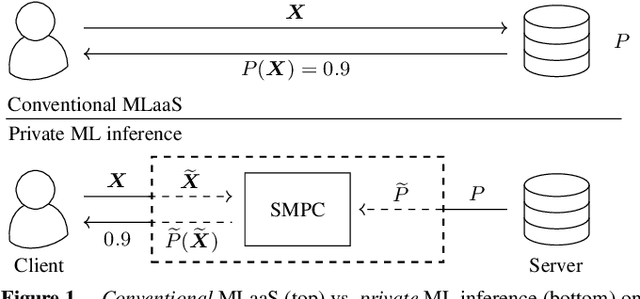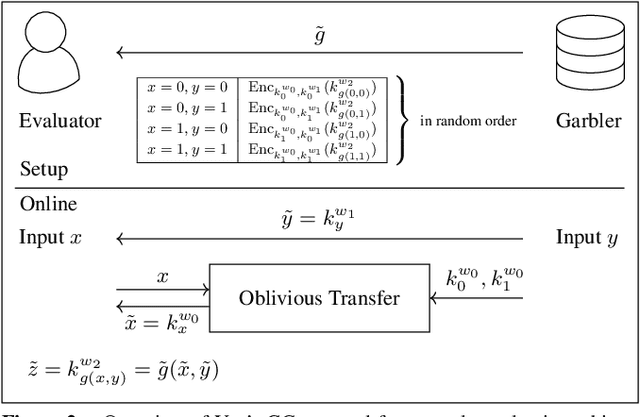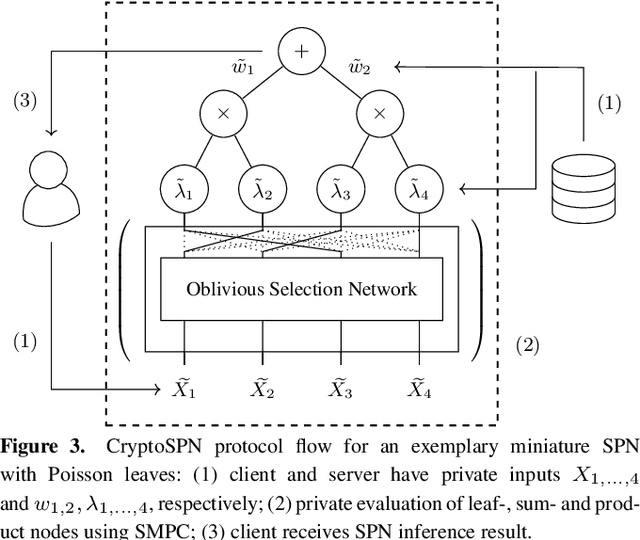Amos Treiber
Trustworthy AI Inference Systems: An Industry Research View
Aug 10, 2020Abstract:In this work, we provide an industry research view for approaching the design, deployment, and operation of trustworthy Artificial Intelligence (AI) inference systems. Such systems provide customers with timely, informed, and customized inferences to aid their decision, while at the same time utilizing appropriate security protection mechanisms for AI models. Additionally, such systems should also use Privacy-Enhancing Technologies (PETs) to protect customers' data at any time. To approach the subject, we start by introducing trends in AI inference systems. We continue by elaborating on the relationship between Intellectual Property (IP) and private data protection in such systems. Regarding the protection mechanisms, we survey the security and privacy building blocks instrumental in designing, building, deploying, and operating private AI inference systems. For example, we highlight opportunities and challenges in AI systems using trusted execution environments combined with more recent advances in cryptographic techniques to protect data in use. Finally, we outline areas of further development that require the global collective attention of industry, academia, and government researchers to sustain the operation of trustworthy AI inference systems.
CryptoSPN: Privacy-preserving Sum-Product Network Inference
Feb 03, 2020



Abstract:AI algorithms, and machine learning (ML) techniques in particular, are increasingly important to individuals' lives, but have caused a range of privacy concerns addressed by, e.g., the European GDPR. Using cryptographic techniques, it is possible to perform inference tasks remotely on sensitive client data in a privacy-preserving way: the server learns nothing about the input data and the model predictions, while the client learns nothing about the ML model (which is often considered intellectual property and might contain traces of sensitive data). While such privacy-preserving solutions are relatively efficient, they are mostly targeted at neural networks, can degrade the predictive accuracy, and usually reveal the network's topology. Furthermore, existing solutions are not readily accessible to ML experts, as prototype implementations are not well-integrated into ML frameworks and require extensive cryptographic knowledge. In this paper, we present CryptoSPN, a framework for privacy-preserving inference of sum-product networks (SPNs). SPNs are a tractable probabilistic graphical model that allows a range of exact inference queries in linear time. Specifically, we show how to efficiently perform SPN inference via secure multi-party computation (SMPC) without accuracy degradation while hiding sensitive client and training information with provable security guarantees. Next to foundations, CryptoSPN encompasses tools to easily transform existing SPNs into privacy-preserving executables. Our empirical results demonstrate that CryptoSPN achieves highly efficient and accurate inference in the order of seconds for medium-sized SPNs.
 Add to Chrome
Add to Chrome Add to Firefox
Add to Firefox Add to Edge
Add to Edge